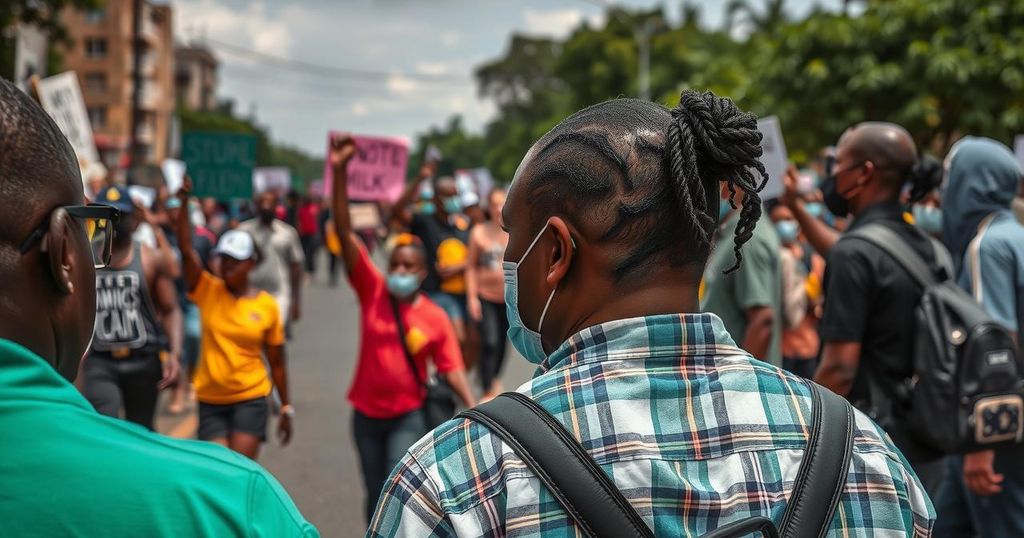Kenya is experiencing heightened anger over a series of abductions targeting government critics, particularly young men who have criticized President Ruto online. Human rights groups and politicians have demanded accountability from police, who deny involvement in these illegal detentions. The Law Society of Kenya and other entities are calling for thorough investigations into these disappearances, reflecting a broader crisis of human rights amid ongoing political tensions.
In Kenya, escalating anger has manifested in response to a disturbing series of abductions targeting government critics. Human rights groups, legal advocates, and politicians have expressed deep apprehension regarding recent incidents, particularly following the disappearance of 24-year-old Billy Mwangi in Embu town. Accusations have emerged against security forces for conducting clandestine detentions, primarily aimed at young men voicing dissent against President William Ruto on social media. Despite police denials of involvement, activists have raised concerns about the apparent lack of investigation into these disappearances, prompting calls for accountability.
The Law Society of Kenya (LSK) has criticized the inspector-general of police for failing to take decisive action against the alleged kidnappers, insisting that if the police are indeed uninvolved, they must rigorously investigate these crimes and bring those responsible to justice. According to Human Rights Watch, earlier investigations have suggested a covert unit linked to various security agencies as being behind these abductions. Former Deputy President Rigathi Gachagua, who previously clashed with Ruto over protest responses, also indicated that a secretive organization may be orchestrating these disappearances, denouncing such actions as not merely unlawful but as a gross infringement on human rights.
The Kenya National Commission on Human Rights (KNCHR) reported that since June, there have been 82 incidents of abduction, with 29 individuals still unaccounted for. Many of these cases involved young men who publicly criticized the government or shared controversial content online. The Kenyan Judiciary has condemned these abductions, stating that they undermine the fundamental rights of citizens and urged security forces to comply with the law to protect individual freedoms. The backdrop of this outrage reflects widespread discontent over rising living costs and government actions perceived as oppressive. Although large protests have dwindled, tensions persist, fueled by allegations of state violence and maladministration.
The article addresses the ongoing crisis in Kenya regarding the alarming increase in abductions, particularly targeting individuals who are critical of the government. It highlights the actions and responses of various stakeholders, including human rights advocates, legal professionals, and former political leaders, in confronting what appears to be state-sanctioned repression. The ongoing tension is exacerbated by economic hardships and previous protests against governmental policies, setting the stage for a deeper examination of human rights and governance in Kenya.
In conclusion, the rising number of abductions in Kenya has ignited significant public outrage and demands for accountability from government authorities. The alarming trend, primarily affecting those who oppose President Ruto’s administration, underscores the precarious state of human rights within the country. With civil society organizations and former leaders calling for transparency and justice, the Kenyan populace continues to grapple with ongoing grievances against governmental actions, raising critical questions about the rule of law and personal safety.
Original Source: www.barrons.com






